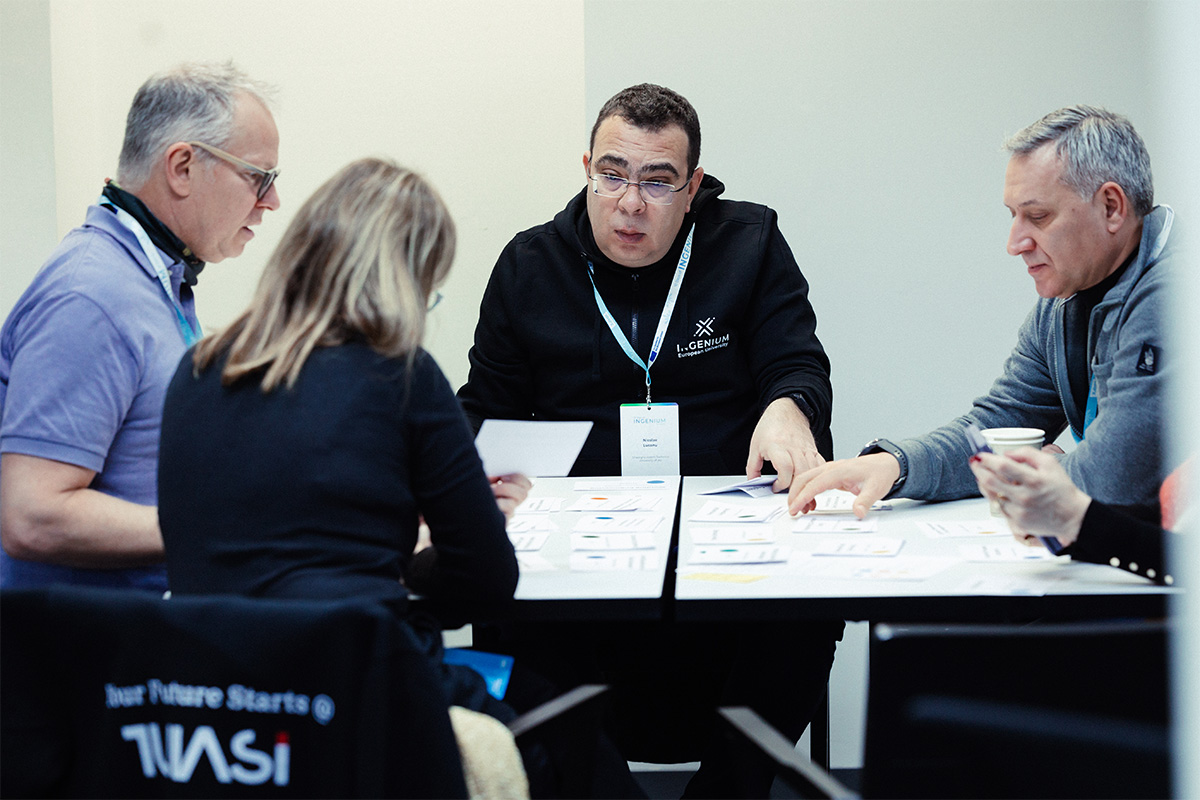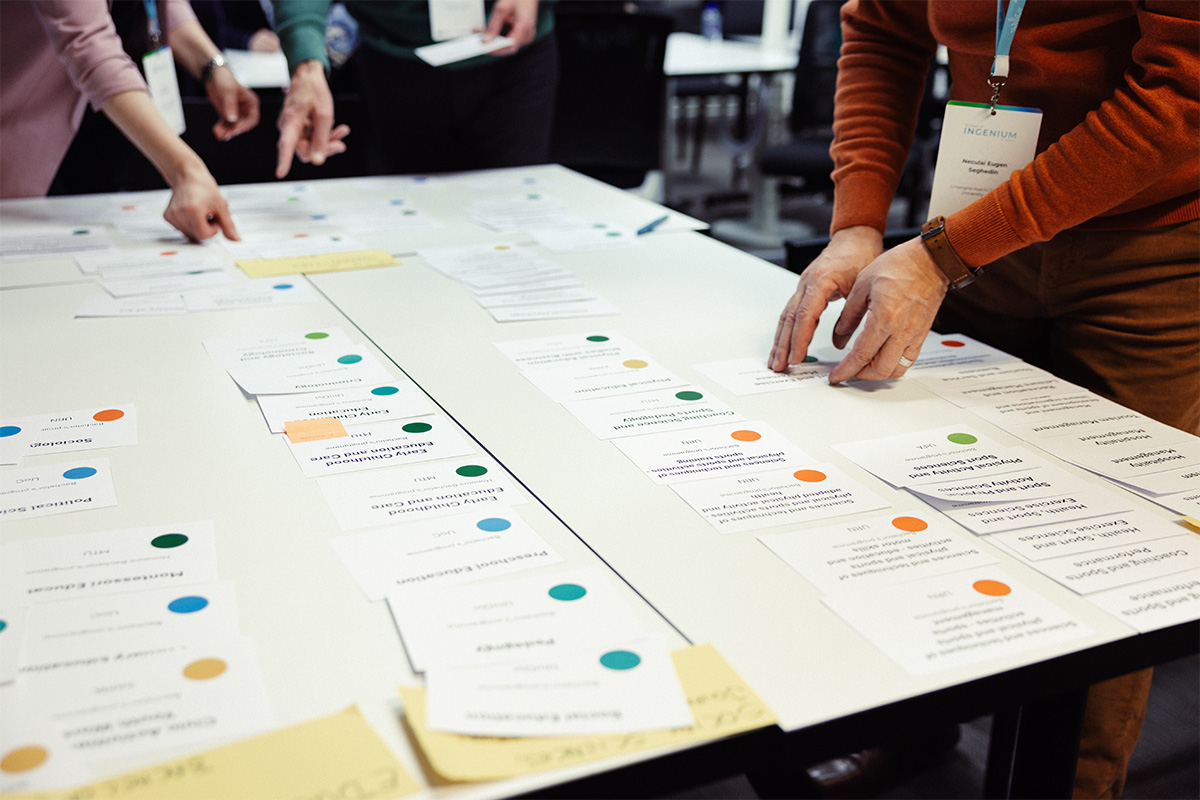Eligible activities under Collaborative Teaching and Learning include (but are not limited to):
Shared or Joint Courses
Developing a course offered collaboratively by instructors at two or more INGENIUM universities. For example, two academics with similar courses at their respective universities might coordinate a joint hybrid course – some sessions taught online jointly to both student cohorts, and others taught in-person with visiting faculty rotating between campuses. Students from each institution could work together virtually and benefit from the expertise of all instructors involved. Fully taught online courses could be open to all INGENIUM students.
Co-Designed Modules or Curriculum Elements
Partner institutions can co-create a common module or project that is embedded in existing courses at each university. This might involve aligning syllabi and assignments so that students in different countries address shared challenges and compare results. Challenge-based learning projects fall into this category – e.g. instructors from multiple universities organize international student teams to solve real-world problems together, collaborating online and sharing their findings across campuses.
Innovative Co-Teaching Arrangements
Faculty exchanges and co-teaching are highly encouraged. For instance, an academic could invite guest lecturers from partner universities to contribute specific lectures or workshops within a course, leveraging international expertise. This could be done virtually (synchronous or asynchronous guest lectures) or through short faculty visits (e.g. using Erasmus+ teaching mobility or INGENIUM mobility funds). Another example is a team-teaching approach where two or more professors coordinate an entire semester’s course delivery together, blending their classes – one week the class is taught by Professor A (streamed to both universities), another week by Professor B, etc., providing students a richer, multinational perspective.
Other Collaborative Learning Innovations
We welcome any other format of inter-university teaching collaboration. This could include developing virtual exchange and Collaborative Online Learning (COIL) initiatives, creating multi-campus project teams or seminars, new uses of technology for joint education, or integrating international components into regular courses (e.g. collaborative assignments between classes at different universities). The emphasis is on enriching student learning through international collaboration and pooling of expertise. If you have participated in an INGENIUM Education Lab or similar initiative and have a concept to extend into a course or teaching unit, this is an ideal platform. Likewise, if a research group across universities wants to translate their collaboration into a training module or interdisciplinary course for students, we encourage those ideas as well. All disciplines and creative pedagogical ideas are welcome.





